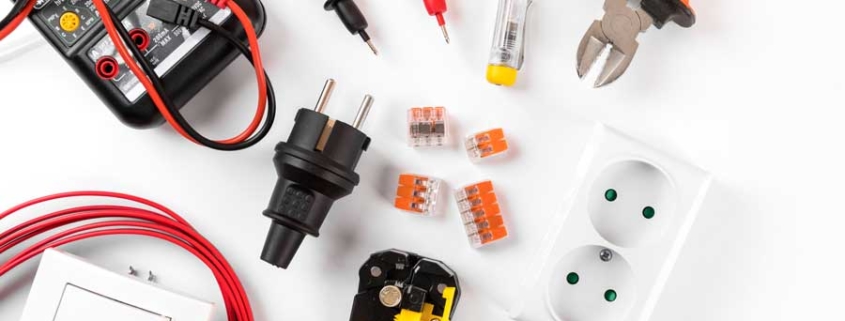Spring home maintenance checklist
You’re stocked up on cleaning supplies, the windows are open and you’ve officially retired your winter coat. Hello spring!
However, spring home maintenance goes beyond deep cleaning and organizing. Work your way through this checklist to make sure your home is ready for the change in seasons.
Exterior maintenance:
1. Check the roof.
If you’re comfortable on a ladder, inspect your roof from up high. If not, use binoculars. Look for damaged or missing shingles and signs of rusting, cracking or leaking. If you find issues, call a professional to assess the damage.
2. Clean out the gutters.
Clear all leaves and debris out of the gutters and downspouts. If they’re sagging, reattach the gutters, or replace them with new hardware. Use caulking to seal holes and prevent leaking. Make sure downspouts face away from the foundation of your home for proper draining.
3. Inspect the concrete.
Take a walk around your property to look for cracking in the driveway, walkways or pool deck. You can fill cracks with concrete filler or silicone caulk, but if the concrete is severely damaged, you may want to replace it entirely.
4. Check outside faucets.
Inspect hose faucets for freeze damage by turning on the water and placing a finger over the opening. If that stops the water flow, the pipe may be damaged. Call a professional to inspect your pipes and determine if they need replacing.
5. Inspect the air conditioning unit.
Remove debris from around the cooling unit, and change the filters. To help your unit run properly in the upcoming months, follow these steps to make your system more efficient. Spring is also the ideal time to schedule a professional HVAC tune-up.
6. Give the deck some attention.
Check the deck for signs of water stains, discoloration and warping. Look for rusty or loose nails, and make sure the railings and stairs are safely secured. Replace rotting or lifting boards.
7. Repair and reseal woodwork.
In addition to the deck, you’ll also want to focus on wooden fences, railings and trellises if you have them. It’s important to give these wood structures some TLC as they are prone to rot and decay so it’s a good idea to learn how to maintain a wood fence.
8. Run the sprinklers.
Turn your sprinklers on to check if the system is still working properly. Look for leaks or broken sprinkler heads. Adjust them so they spray the grass rather than the house, sidewalks or porches.
9. Inspect windows and doors.
Check for cracks or holes and repair as necessary. Use a screen repair kit to fix holes or tears that bugs can sneak through.
10. Spruce up landscaping.
Clear your landscaping of debris, trim overgrowth and plan fresh additions. HGTV recommended using compacted soil in low areas of your yard, as spring rains can cause flooding and foundation damage.
Interior maintenance:
1. Open the windows.
With the welcoming warmth of fresh spring breezes, you might be inclined to do this regardless. Opening the windows is also an effective way to naturally aerate your home and may improve air quality. Take this opportunity to wipe down the interior of the window sills as they have most likely collected dust, dirt and mold over the winter months.
2. Inspect the basement and attic.
Check the walls and floors for water stains, mold and leaks. Remove unwanted moisture that can lead to mold issues or serious water damage.
3. Perform routine home safety checks.
Change the batteries in smoke detectors, make sure fire extinguishers are still intact with the needle in the green zone and check that exhaust fans are working properly. Replace anything that isn’t working immediately.
4. Clean the furnace.
The furnace worked overtime hard these last few months, so make sure you clean the filter system, blower and motor. If you’re not comfortable doing it yourself, call a professional.
5. Consider upgrades.
Spring is the perfect time to revisit your appliances, lighting and other essentials that may need replacing. If it’s time for an upgrade, consider energy-efficient options to help reduce waste and lower your bills. Refer to the Department of Energy for guides to the best home energy improvements.




Leave a Reply
Want to join the discussion?Feel free to contribute!